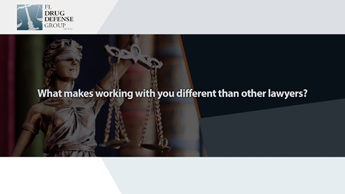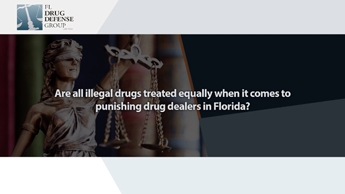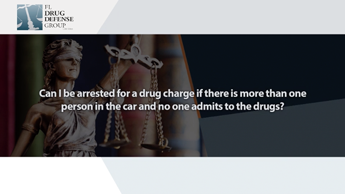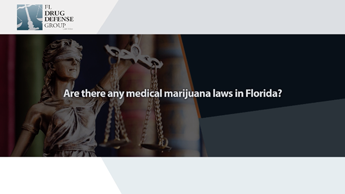Florida Drug Offense Attorney
Literally hundreds and hundreds of substances are controlled by Florida drug laws which prohibit their manufacture, delivery, sale or possession. The vast majority of Florida drug crimes are felonies, and penalties for conviction range from five to 30 years in prison and $5,000 to $10,000 in fines. A felony drug conviction could also cost you your job, your business or professional license, your reputation in the community, and more. With so much at stake, it’s vital for you to be represented by a knowledgeable, skilled and successful Florida drug offense attorney. In Orlando and central Florida, call FL Drug Defense Group for immediate assistance after an arrest on any Florida drug charges, including:
- Possession
- Manufacturing/delivery
- Sales/trafficking
- Dealing
- Possession of drug paraphernalia
- Purchase or possession with intent to purchase
- Delivery of drugs to a minor
How drug crimes are classified in Florida law
Under Florida Statutes 893.13, it is illegal to sell, manufacture, or deliver, or possess with intent to sell, manufacture, or deliver, a “controlled substance.” Controlled substances are defined in Florida Statutes 893.03, which classify drugs into different “schedules” according to their alleged potential for abuse or dependency and their medicinal use. Hundreds of controlled substances are included in these schedules. A quick look at the schedules and examples of controlled substances can be found below.
Schedule I – Substance has a high potential for abuse and no currently accepted medical use in treatment in the United States. Includes: heroin, MDMA (ecstasy), Salvia, Psilocybin, PCP
Schedule II – Substance has a high potential for abuse and a currently accepted but severely restricted medical use in treatment in the United States. Abuse may lead to severe psychological or physical dependence. Includes: cocaine, opium, codeine, oxycodone, morphine, fentanyl, methamphetamine
Schedule III – Substance has a potential for abuse less than Schedule I and II drugs and has a currently accepted medical use in treatment in the United States. Abuse presents a risk of low or moderate physical dependence or high psychological dependence. Includes: ketamine, steroids, GHB
Schedule IV – Substance has a low potential for abuse relative to Schedule III drugs and has a currently accepted medical use in treatment in the United States. Abuse may lead to limited physical or psychological dependence relative to Schedule III substances. Includes: anxiety medications like Valium (diazepam), Xanax (alprazolam), Ativan (lorazepam ), Klonopin (clonazepam) and other benzodiazepines; diet drugs like fenfluramine and phentermine; pain relievers like tramadol; and barbiturates/depressants like phenobarbital
Schedule V – Substance has a low potential for abuse relative to Schedule IV substances and has a currently accepted medical use in treatment in the United States. Abuse may lead to limited physical or psychological dependence relative to Schedule IV drugs. Includes: codeine compounds, Lyrica (pregabalin), stimulants
Marijuana (cannabis) is listed as a Schedule I drug despite the fact that Florida allows for the legal use of marijuana for medicinal purposes.
How Florida drug offenses are punished if convicted
Most Florida drug offenses are classified as either second-degree or third-degree felonies, depending upon the specific drug involved and in some cases the amount of substance. Conviction of a third-degree felony carries a penalty up to five years in prison and $5,000 in fines. Penalties for conviction of a second-degree felony include as many as 15 years in prison and fines as high as $10,000.
Some offenses, such as conviction involving a Schedule V substance or possession of 20 grams or less of cannabis, are first-degree misdemeanors. These offenses carry a penalty of up to a year in jail.
In certain cases, Florida drug offenses can be charged as first-degree felonies, which carry a maximum penalty of 30 years in prison. First-degree felony drug offenses in Florida include dealing in more than 10 grams (less than half an ounce) of certain Schedule I drugs or delivery of drugs to a minor.
Where the offense occurs matters. If the offense occurs within 1,000 feet of a school, child care facility, park or community center, a third-degree felony gets bumped up to a second-degree felony, and a second-degree felony gets bumped up to a first-degree felony. The law also imposes a mandatory minimum of three years in prison for an offense occurring within 1,000 feet of a child care facility. Similar penalty enhancements apply to offenses occurring within 1,000 feet of colleges and universities, churches and places of worship, public housing, and assisted living facilities.
A conviction for the manufacture of methamphetamine or phencyclidine is a first-degree felony with a mandatory minimum of five years in prison if a minor under 16 years old was present. If the minor suffered great bodily harm, the law imposes a 10-year mandatory minimum prison sentence.
Strong, effective criminal defense is essential
With so much at stake, it is absolutely imperative to retain smart, strong and effective representation from an able and experienced drug crime criminal defense lawyer. The prosecutors may be charging you with a much greater offense than they should or that they can realistically prove, and you may have any number of defenses available that demonstrate why you should not be convicted of the offense charged. You may also benefit from having your case heard in drug court & diversion programs rather than criminal court. At FL Drug Defense Group, we know Florida drug laws inside and out, having literally “written the book” on searches and seizures and other police procedures. We’ll examine every aspect of the prosecution’s case against you and determine your best options for a positive outcome for you.
Call FL Drug Defense Group for Help with Drug Offenses in Orlando and Central Florida
If you’ve been charged with a drug crime in Orlando or central Florida, call FL Drug Defense Group at 407-775-9052 to schedule a free case evaluation from an experienced and successful Florida drug offense attorney.







